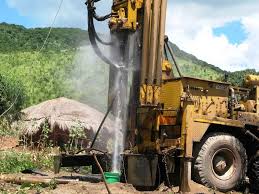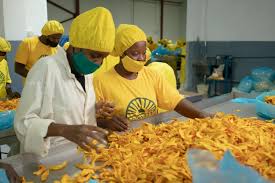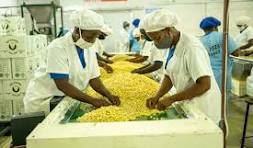Main Economic Sectors:
Agriculture, Mining and Quarry, Manufacturing, Tourism, Financial and Professional Services, Transport and Communication form the main sectors of Malawi's economy.
Major Exports:
Whilst Agriculture is the mainstay of Malawi's economy, accounting for more than one-third of GDP, main exports include tobacco, tea, sugar, cotton, rice, groundnuts, textiles and apparels. Tobacco, tea and cane sugar together generate over 70% of export earnings. Tobacco is the main export earner, providing over 60% of foreign exchange earnings.
Other Exports:
Macadamia nuts, handicrafts, chillies, rubber, timber, paprika and pulses.
INVESTMENT OPPORTUNITIES
According to the 2006 issue of "Doing Business: Removing Obstacles to Growth", a publication of the International Finance Corporation, Malawi's investment climate is above the region's average. The score on Transparency International Perception Index is also above that of many countries in Sub-Saharan Africa. The Malawi Investment and Trade Centre (MITC) operates as a "One Stop Shop" for investment and aims to provide the highest quality of service to those seeking to invest in Malawi. Malawi is a beneficiary of the African Growth and Opportunity Act (AGOA) and is a signatory to many multilateral and regional trade agreements including the Common Market for Eastern and Southern Africa (COMESA) and the Southern Africa Development Community (SADC). Its major exports to the US under AGOA include agricultural products, followed by textiles and apparel products. Major US exports to Malawi include machinery, transport equipment, electronic goods and agricultural and forestry products. Malawi also exports to a number of European countries, including Germany.
Malawi has always been a free market economy with a free trade and investment environment. The government encourages both domestic and foreign investment in any sector of the economy, with minor restrictions on ownership, size of investment, source of funds, and destination of final product. Despite being a land locked country, Malawi has a good road network and railway services which connect Malawian importers and exporters to the ports of Beira and Nacala in Mozambique and the port of Durban in South Africa. The country also has well-serviced international airports in the major cities of Lilongwe and Blantyre.
There are various sectors which provide opportunities for foreign investors especially in agri-business. Specific mention should be made of the cotton sector where investment opportunities include: cotton growing, cotton ginning, spinning, weaving and knitting, as well as manufacturing of textiles and garments. Other opportunities exist in infrastructure development, including the Shire-Zambezi Waterway, the production of cut flowers, fruit juice processing, mining, manufacturing of phosphate fertilizer, rubber products and other industrial products and in the tourism industry particularly hotels and eco tourism.
Malawi's legal system, which is based on the English common law, protects investment regardless of ownership. The country is also a signatory to international treaties for the protection of foreign investment.
_______________________________________________________________________________________
Useful Links:




